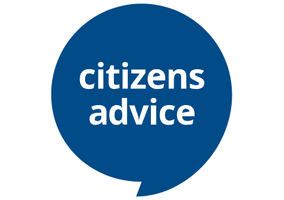It was a Monday like every other. Standing in the queue at my local coffee shop, I scrolled through the news on my phone. There, I encountered the horrific story of three young girls being stabbed in Southport. My thoughts immediately turned to the families affected and the precious lives so cruelly taken. I wondered how anyone could be capable of such an atrocity.
But, as a Muslim, a familiar thought crossed my mind: “God, I hope the perpetrator isn’t Muslim.” It is a distressing thought to have, but in a world where some sections of the media relentlessly demonise and sometimes dehumanise Muslims, and where politicians scapegoat us, it’s a burden we often carry. Individual Muslims walk the streets, seemingly shouldering the blame for the wrongdoing of others.
The typical questions were already forming in my mind: “Do you condemn the stabbings?” As if Muslims are inherently to blame, as if we lack the humanity to feel grief or horror. This is the sort of Islamophobia that has been allowed to permeate our society, largely ignored by our previous government. The unchecked spread of Islamophobic conspiracies, fuelled by far-right rhetoric, is no longer surprising.
When the false news spread that the alleged killer was a Muslim asylum seeker, many took to the streets, calling for an end to Muslims, refugees, and migrants in the UK. Despite the unprecedented decision to reveal the name of the minor – who was reportedly a Welsh teenager of Christian background – Islamophobic slurs quickly escalated into violence.
Southport Mosque was targeted, police officers were attacked, charity shops and refugee support centres were vandalised, and shops were looted. The terror soon spread across the country, from Hartlepool to Bristol. Many Muslims, especially women, feared for their safety. Many felt distressed, and opted to stay at home working remotely, while mosques scrambled to find additional security measures.
Once again, the British Muslim community was left reeling, wondering how we have regressed to the 1970s.
Underlying issues
Despite the strongest condemnations from the prime minister and senior opposition politicians of such vile acts of terror, the current approach of swift justice merely papers over the cracks. Facing the full force of the law might only deepen the resentment the perpetrators harbour towards a system that has failed them and us.
Rather, a robust approach is needed to tackle the systemic far-right hate and structural inequality. Keir Starmer and his government, in partnership with our sector, have an opportunity to reunite the country and address the underlying issues that fuelled these riots.
Years of divisive, hate-fuelled politics and the neglect of addressing Islamophobia have fractured our society, allowing extremism to become as pervasive as it is today. The Islamophobic chants in these riots are only possible when senior politicians enable them by echoing the very same rhetoric.
Referring to Muslim women as “letterboxes”, claiming that “Islamists” control London, or suggesting that Muslims should be arrested for proclaiming their faith in public legitimises Islamophobia in public and civic spaces. The recent joint submission from Amnesty International UK and the Runnymede Trust to the UN Committee on the Elimination of Racial Discrimination highlighted the failure to tackle deep-rooted Islamophobia in our institutions, which ultimately led to these Islamophobic and racist riots.
Scapegoating
Within the charity sector, we have witnessed the harassment and targeting of Muslim humanitarian workers through draconian Schedule 7 powers, which can often feel invasive.
Alongside historic legislation, recent laws such as the Illegal Migration Act, the Police, Crime, Sentencing and Courts Act, the Nationality and Borders Act, and the Elections Act all disproportionately impact Muslims and other minorities. Though the Labour government has dropped the Rwanda policy, the rhetoric around migrants persists, and the scapegoating continues.
Another underlying issue is that, for over a decade, the UK has been subjected to a relentless programme of austerity. Public services have been slashed, welfare support has nearly eroded, leaving many in despair, disenfranchised, and disillusioned with the state that is supposed to provide for them. The far-right has capitalised on this discontent, channelling legitimate grievances into a dangerous and divisive narrative that blames Muslims and other minorities for the financial woes of the rest of the British population.
This narrative, while repugnant, is seductive because it offers an easy target for the anger born of economic hardship. Exacerbated by a political establishment that has weaponised cultural issues to distract from its own shortcomings, politicians have increasingly turned to culture wars as a means of garnering support, rather than addressing the root causes of social and economic inequality.
Picking up the pieces
Yet, I know that in such times, it will be up to the voluntary and community sector to pick up the pieces and invest more resources and efforts to rebuild societies. Muslim charities, among other organisations, have long played a role in strengthening communities and building social cohesion in our diverse country.
Though they are stretched, our communities will do what they do best, repel such bigotry through unity. The heartwarming scenes across Southport and other towns and cities of communities coming together to support one another in the wake of the hate riots truly demonstrate the best of Britain.
My appeal to the new government is straightforward: recognise that the far-right riots were not isolated incidents, but a clear warning of the dangers we face if we continue to ignore the underlying causes. The future of our country and the growing threat of polarisation demand that we confront these issues head-on.
We need a government that is resolute in tackling Islamophobia and racism, beginning with the formal recognition and legal definition of Islamophobia. This would send a powerful message that our society values inclusivity and equality.
Furthermore, the government must address the deep-seated economic inequalities that have contributed to the sense of disenfranchisement felt by many. Policies like the abolition of the two-child cap are essential steps towards supporting those who feel abandoned by the state.
Those hate riots terrorising our streets are a clear reminder that unity must be a priority. However, unity is not simply a loaded term to be used in time of crisis to bring about peace. It requires effort from all participants, including charities, to work towards a more just and equitable society. The future of our country depends on this. Only together will we be able to tackle these systemic issues and protect the best of our country.
Related Articles












